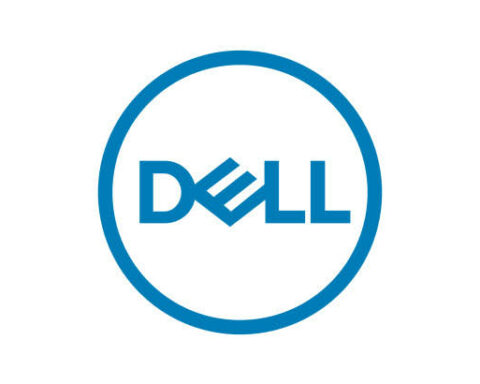Jahnavi- Could you please elaborate on how Billion Careers is planning to address various challenges speed of hiring, the discovery of skilled talent, low productivity, background verification, high attrition etc.
Amit- Billion Careers is a comprehensive platform that provides end-to-end solutions for hiring, managing, and engaging workforces. With Billion Careers products, organizations can streamline their entire HR process, from recruitment to retention, and focus on accelerating their business growth.
The company’s flagship product Qjobs, a digital hiring platform, employs AI algorithms to simplify the hiring process by efficiently connecting job seekers with appropriate job openings based on their skills, experience, and qualifications. This not only minimizes the effort and time required by recruiters to search and evaluate candidates but also guarantees that employers can swiftly recognize and acquire the most suitable talents, ultimately enhancing the speed and efficiency of the recruitment process. Another important but time and money-consuming step in the hiring process is background checks. Through Qjobs, Billion Careers overcomes this difficulty by automating the background check procedure. Utilizing cutting-edge algorithms, Qjobs verifies candidate information and credentials to cut down on background check time and expense while ensuring that candidates
have verified credentials. The performance and profitability of a company can be negatively impacted by low productivity. To address this issue, Billion Careers created WorQ, a platform with tools for task management, route management, shift management, and digital supervision that offers insights into employee performance. Employers can boost worker output and business performance by utilising these features.
The Dash platform from Billion Careers is a platform for employee benefits and financial wellness that offers an individually tailored and exclusive benefits portal for products and services, as well as enhancing the company’s capacity for attracting, retaining, and securing talent. DASH offers benefits like insurance, salary advances, two-wheeler loans, corporate best practices, jackpot and lucky draws, quizzes, medicine, and give away online shopping. Billion Careers is increasing employee engagement and retention by offering these benefits, which can enhance business performance and profitability. Overall, Billion Careers solutions offer a wide range of benefits for both companies and the blue and grey-collar workforce. By leveraging AI, data analytics, and automation, these solutions can help improve HR processes, enhance employee engagement and retention, and provide new
opportunities for career growth and job security in industries that are undergoing significant transformation.
Jahnavi- How does AI help reduce cost acquisition and provide a seamless recruiting process?
Amit- The recruitment process has been transformed by artificial intelligence (AI), which has reduced costs
and increased efficiency. Automated screening, which does away with the need for human involvement in the pre-interview process, is one way AI accomplishes this. Billion Careers’ digital hiring platform Qjobs has implemented fastrack jobs, which utilize audio, video, and documentation to streamline the screening process. This helps save both time and money as recruiters no longer need to spend hours reviewing resumes and cover letters.
Additionally, AI-driven hiring software can enhance the candidate experience by delivering a more personalised and informative process. Virtual job tours, chatbots, and automated communication are just a few of the features that Qjobs has implemented to personalise the job search process. Candidates can now more easily find job openings that match their skills and interests with the help of a personalised job list based on their roles and experience.
Furthermore, candidates receive alerts via SMS and push notifications about relevant job openings nearby, resulting in a seamless and user-friendly experience. This helps candidates have a better overall experience, one that is more gratifying and less frustrating, while also saving recruiters time.
Jahnavi- What are the tech tools used by companies to improve workforce productivity?
Amit- Many companies concentrate heavily on improving employee productivity, and tech tools are becoming an increasingly vital part of this process. Processes for tracking time and attendance are among the most important technological tools used by companies to increase workforce productivity.
Smart timesheets, simple hour submission, and automated approval processes are just a few of the features that these tools offer which reduce time spent and guarantee accuracy.
Real-time shift rostering is another tool that businesses can use to schedule the right employees in the right locations at the right times, enhancing productivity and enabling more data-driven decision-making. It offers a simple interface to adjust hours worked, facilitates the approval process, and provides intelligent recommendations on project performance. Another tool is a task management tool that assigns owners and uses workflows to monitor work completion. Real-time task creation and assignment are possible for managers, and employees also receive timeline notifications. Multiple workflows are available, along with custom tasks that include pre-built components like image upload and geotagging. Detailed reporting offers specific information about how well employees perform on each task.
Apart from the above-mentioned tools, Billion Careers’ workforce management and productivity platform, WorQ offers an interesting feature – the digital supervisor tool, which is gaining popularity among companies who wish to automate and improve supervision. To monitor productivity and address accountability, these tools provide automatic supervision, alertness scores to track employee activity, instant notifications, and detailed reporting. This helps ensure that the employees are performing to the best of their abilities and maintaining a high level of productivity.
Jahnavi- What are the newly emerged AI-enabled job roles in the blue-collar workforce?
Amit- The job market has undergone a major shift as a result of automation and Artificial Intelligence (AI), especially among blue-collar workers. In recent years, several AI-enabled job roles have developed, and they have significantly improved efficiency, productivity, and safety in many sectors. The Autonomous Vehicle Operator is one of the recently developed AI-enabled job roles in the blue- collar workforce. These operators are in charge of supervising and managing the movement of the autonomous vehicles that are prevalent now. To make sure the vehicles run smoothly and efficiently, they use advanced AI algorithms.
Another job role is the Industrial Robot Operator. These professionals are in charge of operating and programming robots used in various industries, including manufacturing and construction. To ensure that the robots complete their tasks accurately and effectively, increasing productivity, they use AI- enabled tools. Another crucial position in the blue-collar workforce that has been transformed by AI is Quality Control Inspector. These inspectors use cutting-edge AI algorithms to spot flaws and irregularities in the goods and services they are in charge of checking. This makes it possible for quality control procedures to be more effective and accurate, which ultimately leads to higher- quality goods and services.
Warehouse automation technician is also a new AI-enabled job role that is emerging now. These professionals programme and manage warehouse automation systems, which may include robots, conveyor belts, and other automated equipment. They make sure that these systems run smoothly and effectively, which speeds up and optimises product handling and shipping procedures.
As AI technology continues to advance, we can expect to see even more new and exciting job roles emerge in the future.
Jahnavi- How can companies use technology to ensure good candidate hires and retain their employees?
Amit- Companies are constantly looking for ways to streamline their hiring process and retain top talent in today’s competitive job market. Companies can achieve this by utilising technology, particularly artificial intelligence (AI). By leveraging data-driven insights and predictive analytics, AI can assist companies in ensuring that they are hiring the best candidates and retaining their employees.
The recommendation logic on Qjobs is an example of this, as it makes use of AI to examine candidate profiles and job postings to identify the most suitable matches. Narrowing the pool of applicants that are most likely to be a good fit for the position, can help companies save time and resources. Employing AI in this way allows companies to avoid missing out on top talent and improve the quality of their hiring decisions.
Additionally, companies can use technology to retain their current employees. For instance, they can find trends in employee behaviour and preferences using data analytics tools. As a result, they may be able to more effectively tailor their benefit and perk packages to the needs of their workforce, which may increase employee retention.
Jahnavi- How does technology help navigate the talent shortage in the industry?
Amit- The use of talent platforms and job boards is one of the primary ways technology aids in navigating the talent shortage. These platforms make it simple and quick for companies to post job listings and conduct talent searches bridging the gap between job seekers and recruiters.
Talent platforms like Qjobs are even more crucial in the blue-collar workplace. Technology has significantly contributed to making it easier to navigate the skilled labour market, which has always been challenging. These platforms give job seekers access to opportunities they might not have otherwise known about. They also allow recruiters to tap into a broader pool of talent, increasing their chances of finding the right fit for their organization. Since its inception during the pandemic, Qjobs has onboarded more than 10,000 employers and 20,000 recruiters and has more than 1 million job openings annually. Talent platforms can also speed up the hiring process, including digital interviews, screening, and candidate communication. By doing this, recruiters can concentrate on
the important aspects of the hiring process while also saving time.
Moreover, technology can also help close the skills gap by giving current employees the chance to receive training and upgrade their skills. Qjobs provides candidates in a variety of industries with upskilling opportunities, allowing them to develop new skills and qualify for better positions. This not only fills the skills gap but also raises the talent pool’s overall quality. It is likely that as technology develops, more innovative solutions will emerge, assisting companies in overcoming this obstacle and identifying the talent they need to succeed.








